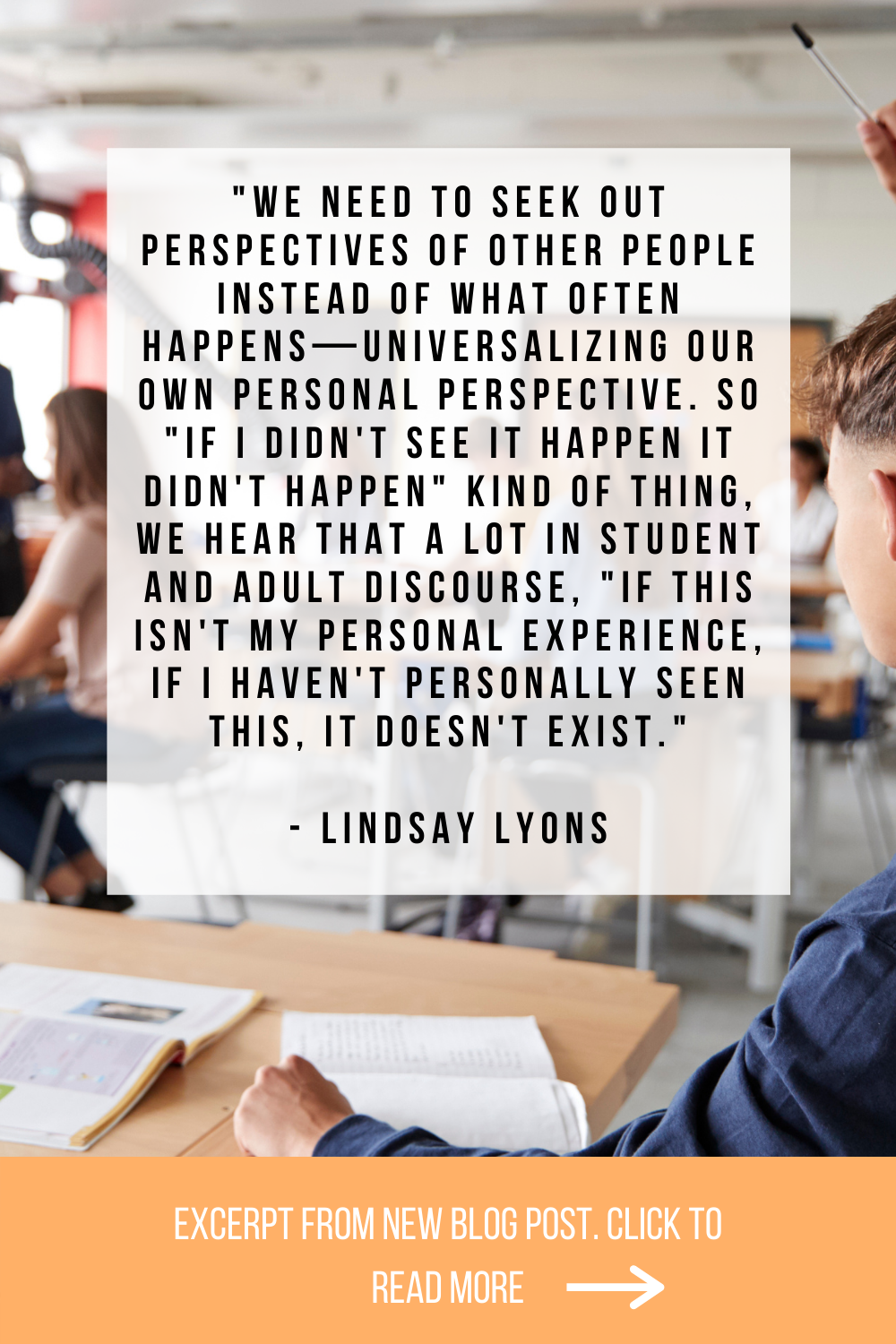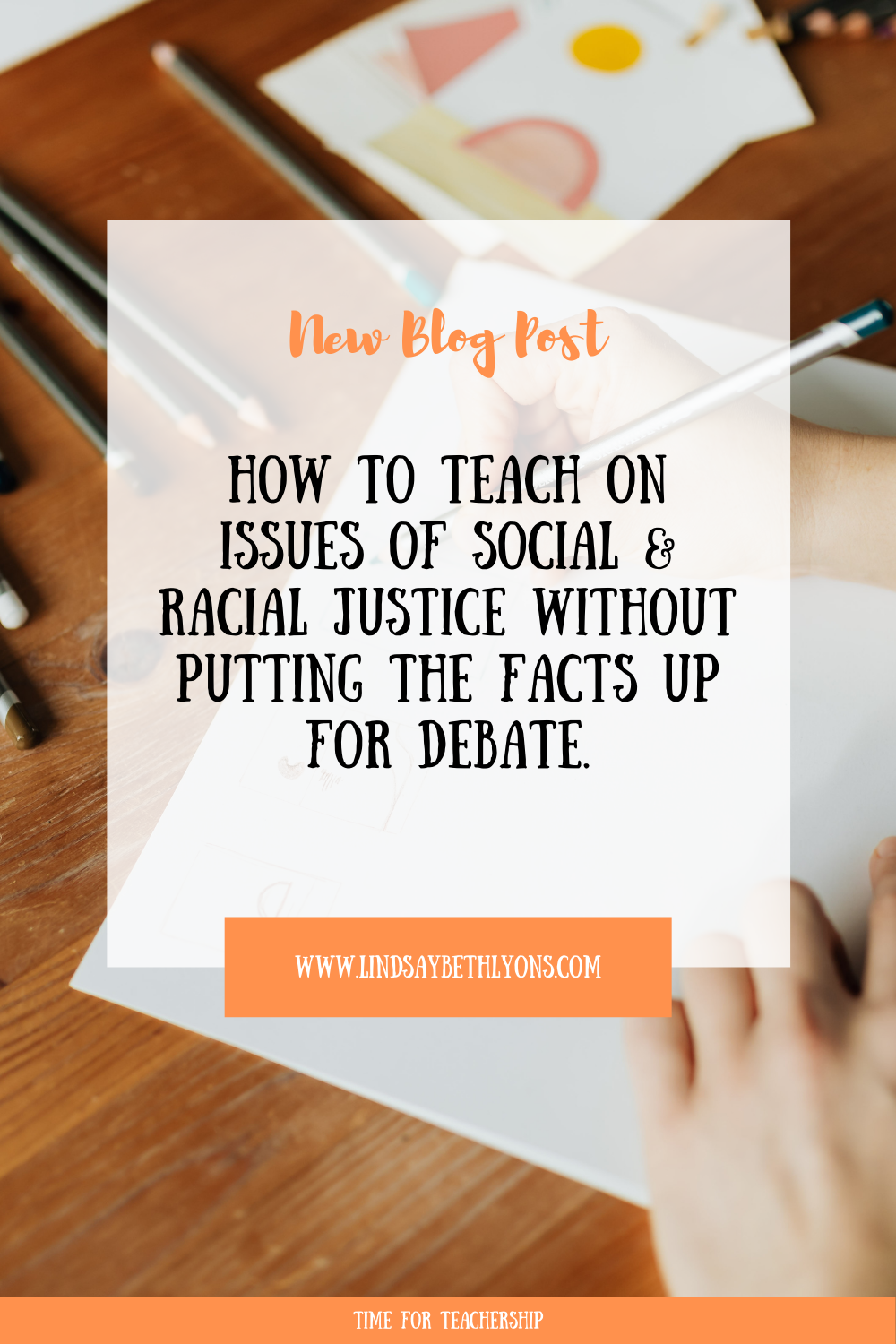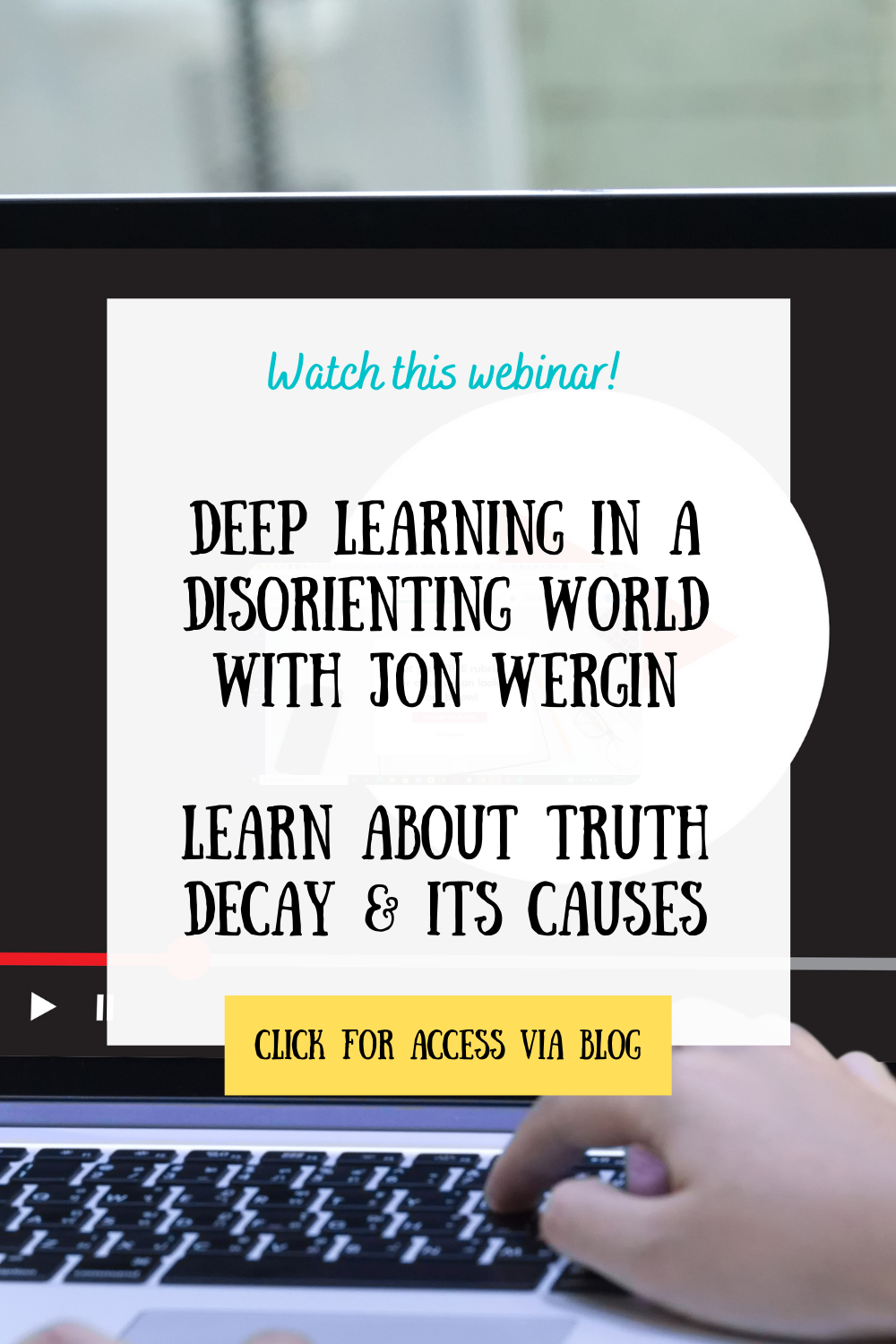|
Listen to the episode using the above player or by clicking the link to your preferred podcast platform below:
What do you do when facts don't seem to matter? One of the most common questions I get when facilitating with teachers and district leaders is how do I teach for justice without feeling like I’m indoctrinating my students? There’s a line that teachers and leaders want to walk, afraid to go too far into radical ideas. There’s also the point that the facts are always being put up for debate. Dr. Ayo Magwood’s article goes over how to have a historical, scientific approach to anti-racist education. She says “I do not allow classroom debate over whether structural racism exists. As Hess and McAvoy (2104) argue ‘That is inauthentic and problematic to allow students to debate settled empirical questions,’”. She is stating some questions have factual answers. Then there are policy questions which are debatable because they are a matter of opinion on how certain factual issues should be handled. Making these distinctions are a way for us to be able to hold important discussions while the facts remain important. Perspectives Consciousness Approach The other piece of this is that you should be teaching the history and sociology on these empirical topics but when it comes to the debatable parts, you might want to take a perspectives consciousness approach. This approach was made by Robert Hanvey in 1976. It centers on how we all have different views and that’s because our positionality is so varied. The intersection of our different identities is what influences our perceptions of various issues. Seek out the perspectives of multiple people instead of taking your perspective as the universal one. We see this happen with both children and adults. There’s this ‘If I didn’t see it happen or if I didn’t experience it, then it didn’t happen’ type of mentality. “This is something that is applied to the policy solution question; It's not applied to a factual question or an empirical question because then we run the risk of universalizing our personal perspectives. If we say ‘this is my truth and therefore it is fact, it is true for everyone’, that becomes problematic.” Truth decay Another helpful resource is Dr. Jon Wegin’s book, “Deep Learning in a Disorienting World”. The author explains the importance of deep learning and how to take steps towards that. One of the terms in his book is “truth decay”. Truth decay has been found to be caused by the following:
“What we're trying to do is to motivate students to latch on to that emotional piece and support action, the motivation to complete the worksheet or to complete the project or to apply the skills, whatever it is, but that emotion is really critical.” This kind of discourse thrives with equal parts challenge and confidence. We don’t want students getting too frustrated with challenges but just enough that they are able to figure it out. We also want confidence so that students are motivated to keep trying even if they don’t have success the first few times. All of these main points from each author can be practiced by students, teachers, family members, etc in order to build more capacity for discourse that challenges, transforms and promotes racial justice. To continue the conversation, you can head over to our Time for Teachership Facebook group and join our community of educational visionaries. Until next time leaders, continue to think big, act brave, and be your best self.
0 Comments
Leave a Reply. |
Details
For transcripts of episodes (and the option to search for terms in transcripts), click here!
Time for Teachership is now a proud member of the...AuthorLindsay Lyons (she/her) is an educational justice coach who works with teachers and school leaders to inspire educational innovation for racial and gender justice, design curricula grounded in student voice, and build capacity for shared leadership. Lindsay taught in NYC public schools, holds a PhD in Leadership and Change, and is the founder of the educational blog and podcast, Time for Teachership. Archives
May 2024
Categories |




 RSS Feed
RSS Feed